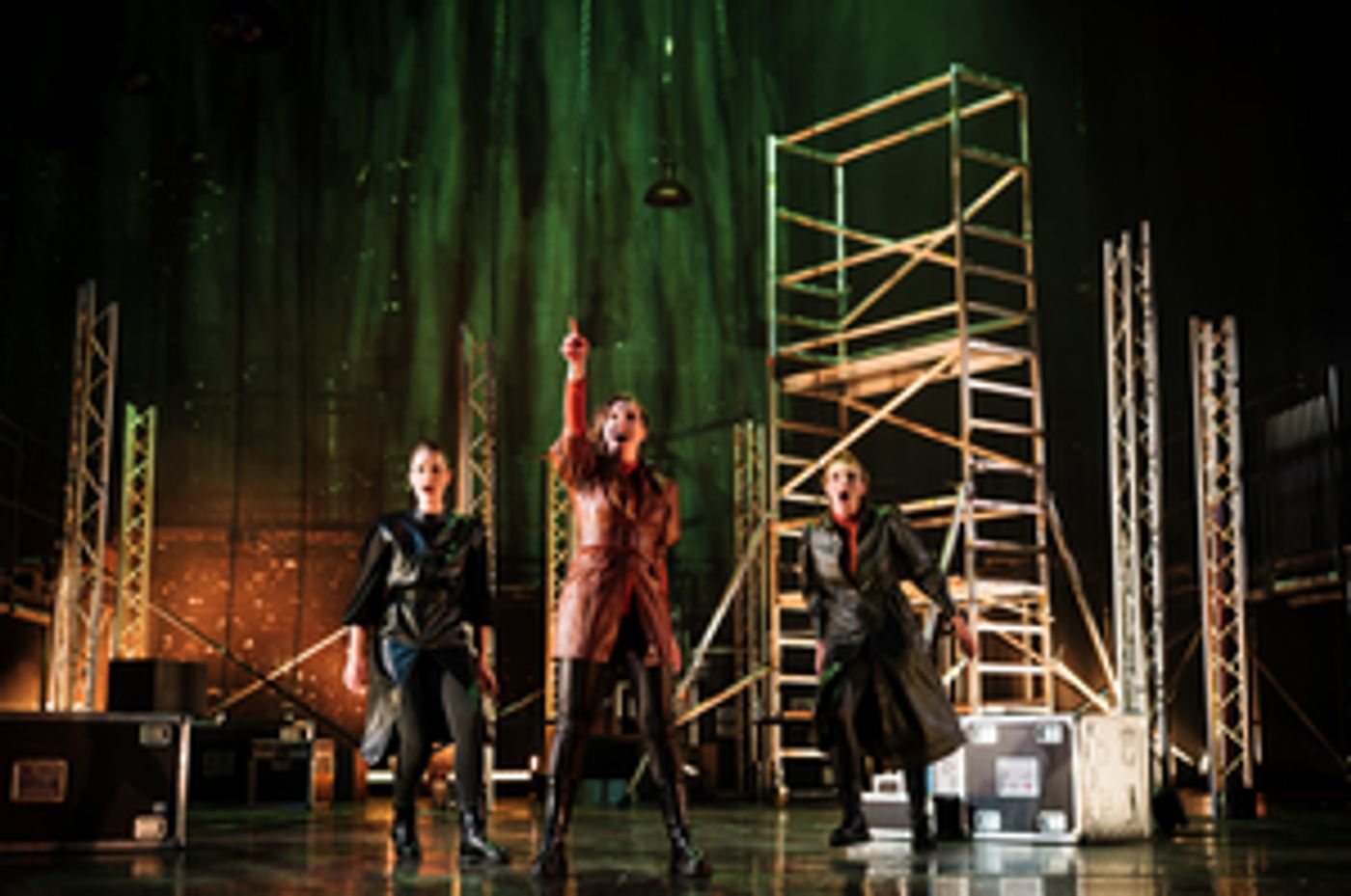Review: DIE WALKÜRE, Hackney Empire
The Grimeborn Festival takes a short trip from Dalston to Hackney via Valhalla.

![]() Grimeborn, the annual opera festival, has moved round North London's Latte Belt from Dalston to Hackney and pitches up at the grand old Empire with the second part of Richard Wagner's The Ring Cycle, Die Walkürie. It's a change of location that brings problems and opportunities, with an echo or two of those given to Brünnhilde in the work itself.
Grimeborn, the annual opera festival, has moved round North London's Latte Belt from Dalston to Hackney and pitches up at the grand old Empire with the second part of Richard Wagner's The Ring Cycle, Die Walkürie. It's a change of location that brings problems and opportunities, with an echo or two of those given to Brünnhilde in the work itself.
Sensing his doubts, she disobeys her father, Wotan, and spares Siegmund death as her heart is touched by his confessions of love for his sister, Sieglinde, whom he has recently found after years of separation. Wotan, as gods are wont to be if defied by women who think they know better, takes badly to this turn of events and does Brünnhilde's job for her, ensuring that Siegmund dies in his fight with Hunding, with whom he has been feuding. Things don't end well for Hunding either - it never pays to get too close to an angry Norse god.
Brünnhilde spirits Sieglinde away, telling her that her unborn child will be the greatest hero of them all (The Ring Cycle is a boxed set, remember) and seeks sanctuary with her fellow Valkyrie sisters, who, taking time off from selecting the dead warriors fit to enter Valhalla, rally to her side, but quail in the presence of Wotan, still dialling the bad temper to 11.
As punishment, Brünnhilde is made mortal and exiled to a mountain top (German Romanticism's ethos could hardly accept less) but, Wotan, remembering his love for his favourite, allows her request for a ring of fire to encircle her, Brünnhilde having calculated that the only prince who could traverse it and wake the sleeping beauty she will become is Siegfried, the hero yet to be born.
So, mash up Game of Thrones and The Lord of the Rings, and out pops this testosterone-fuelled epic, albeit one with strong female characters. As Grimeborn operas intend, this stripped back version by Jonathan Dove and Graham Vick, is certainly accessible, but I'd suggest that it's worth reading the synopsis in the programme or on Wikipedia before taking your seat.
Moving from the tight confines of The Arcola, home to Grimeborn and the excellent 2019 production of The Ring Cycle's first part, Das Rheingold, diminishes and enhances the unique pleasures of a boutique opera, the scaling up of the concept not wholly successful.
It's still a privilege to hear singing of this quality outside the big houses with their big prices - Mark Stone expressive as Wotan, Laure Meloy heartbreaking as Brünnhilde and soprano, Natasha Jouhi, sensational as Sieglinde - but it's a big house to fill and you do lose the almost atavistic impact of these voices giving it everything within touching distance, as they are in Dalston. Perhaps the aesthetic dimension is enhanced, as Stone's baritone resonates round the house, but the thrill is diluted.
The vast stage doesn't help matters, with Bettina John's set design looking like a backstage space at The Royal Opera House, with scaffolding poles a "neither here nor there" proxy for swords. The stakes seem less life and death and more "Who's going to fix the broom handle?" It's only when the three Valkyrie sisters (in leather tailoring no less) turn up on swings and accompanied by their impressive and familiar fanfare, that the stage looks filled - owned really - by the gods whose domain it is. Too often, the sparks have too much distance to cross to ignite the fires that roil beneath the surface.
We gain with the music. Peter Selwyn conducts the 18 strong Orpheus Sinfonia with such confidence, all the power and emotions of Wagner's score working its way into our souls. The surtitles may give us the English translation of the German libretto, but they're largely superfluous - the music is telling us everything we need to know. There are one or two occasions when the Donner und Blitzen overwhelms the voices, but not often, that balance (so crucial and so often overlooked) perfect from my seat in the stalls.
There will be more spectacular versions, maybe more intimate versions too, but director, Julia Burbach, gives us a Die Walkürie that has much to offer Wagner superfans (I suspect there might not be any other kind) and plenty too for those dipping a toe into a legendary (in every sense) work that can be intimidating as opera gets. Coming in at not much above three hours with an interval, you can look the unsmiling Saxon composer with the politically incorrect reputation in the eye and say (like Siegmund) "Let's do this." You won't be disappointed.
Die Walküre is at the Hackney Empire until 7 August and the Grimeborn Festival continues at The Arcola Theatre until 11 September.
Photo Alex Brenner.
Reader Reviews
Videos

